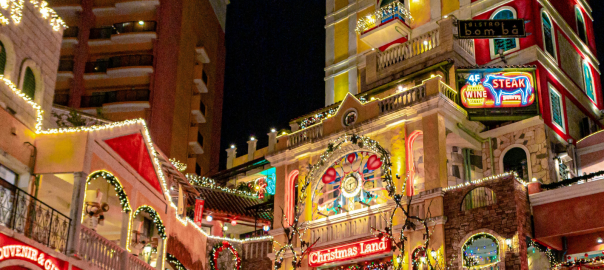
Our Student Engagement Ambassador, Florencia, discusses the impact of COVID-19 on her Christmas celebrations and her experience of celebrating Christmas away from her home country, Argentina, and offers advice to students who are unable to go home for Christmas, for whatever reason.
So, it seems we are heading towards our second pandemic Christmas. Last Christmas was pretty lonely to me and I imagine for lots of people. Hopefully, this time won’t be as restrictive (my irrational and superstitious side insists I knock on wood after even mentioning this). Nevertheless, with the latest variant, or perhaps even before, many people may have had to cancel or change their holiday plans. This was certainly my case.
Although this pandemic has forced my plans to change, this is not the first time I had to spend the holidays away from my home country, Argentina. I have been lucky enough to do my master’s degree and now PhD in foreign countries. During this time, I often couldn’t travel home for the holidays. This resulted in me having to adapt. I thought I would share some personal experiences, which might help people who, for either pandemic related or general limitations, cannot go home for Christmas.
Firstly, I would like to clarify that this advice is based on my own experiences and may not work for everyone. I must admit that despite everything, I have been pretty lucky and was able to find joy all my holidays. However, I also know that these past two years have been especially difficult. For lots of people, there may not be a way to make things better. I just hope this can help someone reframe their situation. I also must admit that although I come from a religious country, I am not religious myself, so I cannot comment on the limitations concerning specific religious traditions.
In general, I think that when away from home, the most important thing is to find a balance between what is important to us to keep the same and what we are willing to change to experience new things. Similarly, we have to try our best to deal with what we can realistically change and what we cannot.
These are some of the topics I considered while approaching Christmas abroad. I think they might apply to other occasions, but I am centering myself here on Christmas specifically as it is the holiday I am most familiar with:
Accepting that it might not be the same you planned or the same as it was back home.
This doesn’t have to be a loss. You can have a different Christmas and still have a good time. I used to have a pretty set idea of how Christmas was, who I should spend it with, what I had to eat, and what I had to do. However, I couldn’t do any of this as a student abroad. I tried to look at it positively and try new things, exploring how Christmas is experienced from other perspectives. This meant not comparing what I was doing to an idealised home Christmas but engaging with the new experience of its own.
What’s important to you?
You may still be able to keep some things. Christmas back home happens during summer, so basically, every food we have is different from what is available in the UK. Food is not the most significant part of this holiday for me, so I was able to part from it and take it as an opportunity to try new things. This resulted in fun experiences. I had KFC and strawberry ice cream cake in Japan as well as Christmas mince pies and mulled cider in the UK. I was also able to keep what was important to me. I don’t have a tree, but I carry around a little nativity. If food is important to you, you may make hunting for familiar recipes and substitutes a fun little quest.
Find a way around limitations.
When I was living in Japan, Christmas was not a holiday. I could not take the day off to celebrate. For this reason, I had to move the celebration to focus on a Christmas dinner with a friend and run before midnight hit so I could get the last train home. It was not ideal. I was still away from my family. However, I could spend it with people I cared for. Thanks to the time difference, I was also able to schedule a call with my family and talk during the most significant time of the festivity, Christmas’ eve, back at home.
Last year, as restrictions prevented me from getting together with friends, I spent Christmas eve zooming with my family. On Christmas day, I had lunch with my only remaining flatmate (everyone else had left).
It is ok to feel sad.
It is normal to feel frustrated. I certainly did. However, once I accepted my new situation, I could make new plans within my new circumstances. This didn’t eliminate my fears, particularly last year, but it did allow me not to be paralysed by them.
Don’t dwell too much.
It is tempting to just shut off. Nothing seems right, so we might as well not do anything. However, I think it gives us a chance to make things as good as possible. Can I travel to a new place? Have a party? Try new foods? Try a new activity? Explore the city? Find new ways to connect? Search for events (maybe online)? What about doing something on your own? The university not only has information about holiday restrictions but also regarding Christmas and activities in the UK. Reading is also filled now with holiday stands to explore around.
Of course, not everyone is the same. If you need some time to yourself, it is also ok. I think the important is to balance what you want and what you can do and then decide what you want to do this year.
Happy holidays!
By Florencia Botta
